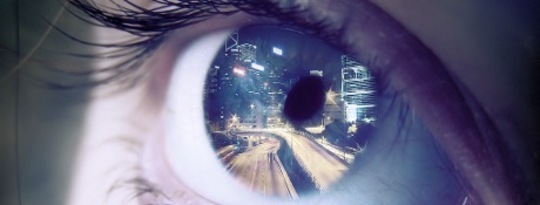
 he greatest crisis in our lives is a crisis of imagination. We get stuck, and we bind ourselves to the wheel of repetition, because we refuse to reimagine our situation. We live with a set of negative or confining images and pronounce them "reality." We do this because we let ourselves get trapped in a particular version of the past or in a consensual hallucination. We do it to cling to the familiar, not daring to give up what we are or have been for what we are meant to become.
he greatest crisis in our lives is a crisis of imagination. We get stuck, and we bind ourselves to the wheel of repetition, because we refuse to reimagine our situation. We live with a set of negative or confining images and pronounce them "reality." We do this because we let ourselves get trapped in a particular version of the past or in a consensual hallucination. We do it to cling to the familiar, not daring to give up what we are or have been for what we are meant to become.
The crisis of imagination is pandemic. The 9/11 Commission rightly pronounced that the horror of the worst terrorist attack in American history was "a failure of imagination." With only a few exceptions, those responsible for security could not imagine a terrorist group executing a plan as bold and horrendous as attacking major targets on American soil with hijacked American planes.
Yet the plan had been "in the air" for years, and it was certainly dreamed by many people who had no other access to information about it. In the fall of 1998, a New York woman shared with me a terrifying dream she could not understand, in which American planes were attacking targets on American soil, in Washington, DC, and elsewhere.
Re-Visioning Everything
To address our challenges, we need to draw on extraordinary sources of information and invest our energy and attention in a form of active imagination that dares to re-vision everything. To be citizens of the world (to quote Marcus Aurelius) we must cultivate sympathetic imagination, which is what allows us to understand the feelings and motivations of people different from us. The ability to imagine one's self in another person's place is vital to healthy social relations and understanding. A sociopath signally lacks this ability.
To bring peace and balance to our world, we require historical imagination, by which I mean both the ability to claim what is helpful from the past and the faculty for spotting alternatives to a particular event track — past, present, or future.
Choosing Differently at Every Turning
Winston Churchill was a master of historical imagination, and his ability to navigate through the worst crises of the twentieth century was intimately connected to his ability to imagine the consequences of choosing differently at any turning. When he studied the past — most notably in researching his biography of his ancestor the Duke of Marlborough — he was constantly investigating what might have happened had different choices been made, and drawing the lessons.
When he considered the future, he not only demonstrated extraordinary prescience (writing in the 1920s, he forecast weapons "the size of an orange" that could destroy cities), but he seemed always to be tracking alternate possible event tracks.
As Isaiah Berlin wrote of him in Winston Churchill in 1940,
"Churchill's dominant category, the single, central organizing principle of his moral and intellectual universe, is a historical imagination so strong, so comprehensive, as to encase the whole of the present and the whole of the future in a framework of a rich and multicolored past."
Whether the issues are in our world or our personal life, the practice of imagination requires claiming a creative relationship with the past. There is an image from Ghana that springs to mind. It shows a strange bird looking over its shoulder. This symbolic bird is called Sankofa, and its role is to remind us to bring from the past what can heal and empower us — and dump the rest.
Practicing Imagination
 One thing we want to reclaim from the past is the wisdom of the child mind. The practice of imagination begins with making room in our lives for the child who knows it's okay to "make things up" and knows this is fun.
One thing we want to reclaim from the past is the wisdom of the child mind. The practice of imagination begins with making room in our lives for the child who knows it's okay to "make things up" and knows this is fun.
When asked why he was the one to develop the theory of relativity, Einstein said: "A normal adult never stops to think about problems of space and time. These are things which he has thought about as a child. But my intellectual development was retarded, as a result of which I began to wonder about space and time only when I grew up."
Mark Twain insisted, "No child should be permitted to grow up without exercise for imagination. It enriches life for him. It makes things wonderful and beautiful."
Whatever age we have reached, we all need a daily workout, and a place to go, in the real world of imagination.
Keep working out, and you'll remember that, as poet Kathleen Raine wrote beautifully, "Imaginative knowledge is immediate knowledge, like a tree, or a rose, or a waterfall or sun or stars."
Build your home in the imagination strong enough, and you may find it is the place of creative birthing we all long for, the state of mind Mozart evoked when he said:
"I can see the whole of it in my mind at a single glance.... All the inventing and making goes on in me as in a beautiful strong dream."
Reprinted with permission of the publisher,
New World Library, Novato, CA. ©2007. 2009.
www.newworldlibrary.com or 800-972-6657 ext. 52.
 Article Source:
Article Source:
The Three "Only" Things: Tapping the Power of Dreams, Coincidence, and Imagination
by Robert Moss.
For More Info or to Order This Book (hardback) or paperback.
About the Author
 Robert Moss was born in Australia, and his fascination with the dreamworld began in his childhood, when he had three near-death experiences and first learned the ways of a traditional dreaming people through his friendship with Aborigines. A former professor of ancient history, he is also a novelist, journalist, and independent scholar. Visit him online at www.mossdreams.com.
Robert Moss was born in Australia, and his fascination with the dreamworld began in his childhood, when he had three near-death experiences and first learned the ways of a traditional dreaming people through his friendship with Aborigines. A former professor of ancient history, he is also a novelist, journalist, and independent scholar. Visit him online at www.mossdreams.com.
Watch a video: Robert Moss interview on Dreaming & Coincidence



























